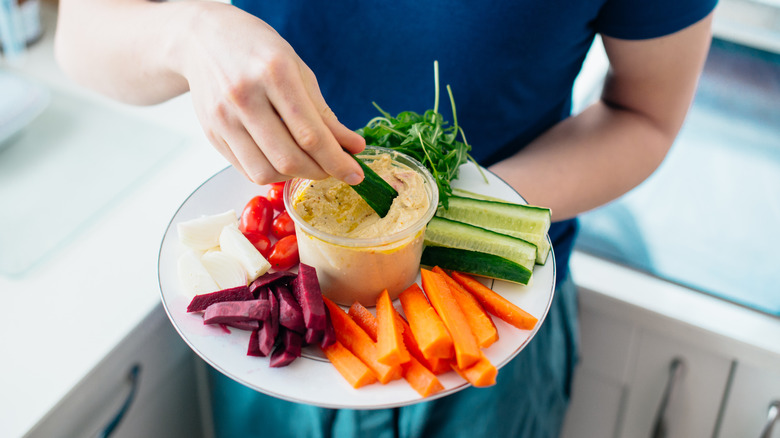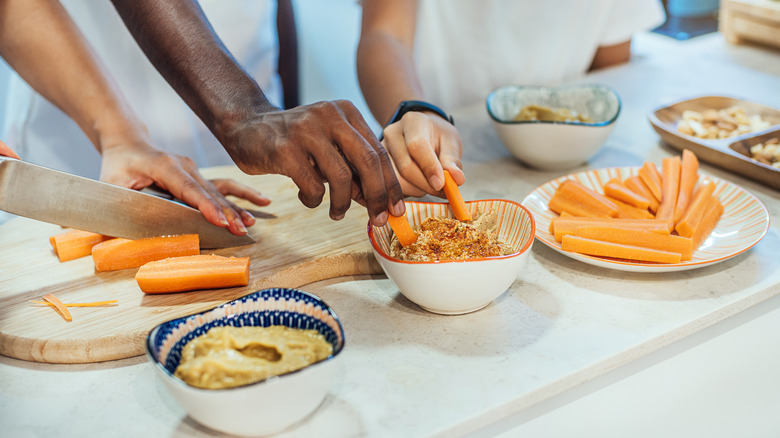Can Adding Hummus To Your Diet Help Improve Your Gut Health?
One popular Mediterranean dip that's easy to make and readily available in many grocery stores is hummus. Traditionally, hummus is made by combining chickpeas, tahini, lemon, olive oil, and salt (per Healthline). But nowadays, there are several other tasty spins on this dip ranging from black bean hummus to spicy buffalo wing hummus (per Food Network). Whether you're team classic hummus or team spice-it-up, hummus is versatile, yummy, and offers some impressive health benefits, explains Healthline. What's not to like about this dip?
In fact, hummus is brimming with plant-based protein and rich in antioxidants, points out Healthline. One 100-gram serving of homemade hummus clocks in at 177 calories and contains 4.86 grams of protein, 4 grams of fiber, and 20.1 grams of carbohydrates, according to the U.S. Department of Agriculture (USDA). It's also rich in calcium, manganese, copper, folate, magnesium, zinc, and phosphorus.
Not to mention, the powerful ingredients in hummus also help with inflammation. Virgin olive oil, in particular, is often associated with possessing anti-inflammatory properties (per Current Pharmaceutical Design). In addition, these ingredients support heart health and may help with managing blood sugar levels (via Healthline). With such a remarkable list of health benefits, will hummus improve gut health too?
Chickpeas promote healthy bacteria
For those wondering if hummus supports gut health, the good news is, it does (per Healthline). Chickpeas contain 4 grams of dietary fiber per 100-gram serving of homemade hummus, shares the USDA. While chickpeas are loaded with fiber, they also contain a special soluble fiber called raffinose, points out WebMD. Thanks to each of these, chickpeas support digestion, regulate your bowels, and help you pass stools with more ease (per WebMD). This is because dietary fiber supports gut health by feeding the healthy bacteria that live there (via Healthline).
A 2010 study published in the journal, Beneficial Microbes, reports that chickpeas and raffinose encourage intestinal health and have the ability to adjust the intestinal microbiota. More specifically, chickpeas can influence good bacteria to grow like Bifidobacteria (via Beneficial Microbes). It can also increase the number of Bacteroides and Lactobacillus (another type of good bacteria) found in the gut, according to a 2021 animal study published in the Journal of Medicinal Food. At the same time, diets that include chickpeas can help stop pathogenic and bad bacteria from growing (per Beneficial Microbes).
With this in mind, snacking on some hummus can be an excellent addition to your diet as it's both tasty, nutritious, and easy to make. Consider dunking your veggies in hummus or spreading it on your favorite sandwich as there are endless ways to eat hummus!


